Pension performance update: May 2023
- By
- Murray Humphrey
How did your pension fund do in May? Plus: how artificial intelligence moved the markets.

May was a patchy month for stocks and shares with global equities falling by just over 1% during the month. But there were many bright spots for investors, including a surge in the price of technology stocks as increasing interest in the benefits and capabilities of artificial intelligence mushroomed.
Remember, you have a very long time horizon with pension savings. They are invested to generate growth in your savings over the long term, but that growth is only possible by having short term ups and downs along the way.
This article should help you understand some of the key reasons why those ups and downs happen. Keep in mind that markets have historically always recovered to grow steadily over the long term.
How our pension plans performed
Despite the slight fall in the price of global equities, all of our pension plans performed well during the month, with the majority holding onto the gains they made during the last few months.
The outstanding performer, however, was our Sharia fund, which notched up a strong five percentage point increase in May.
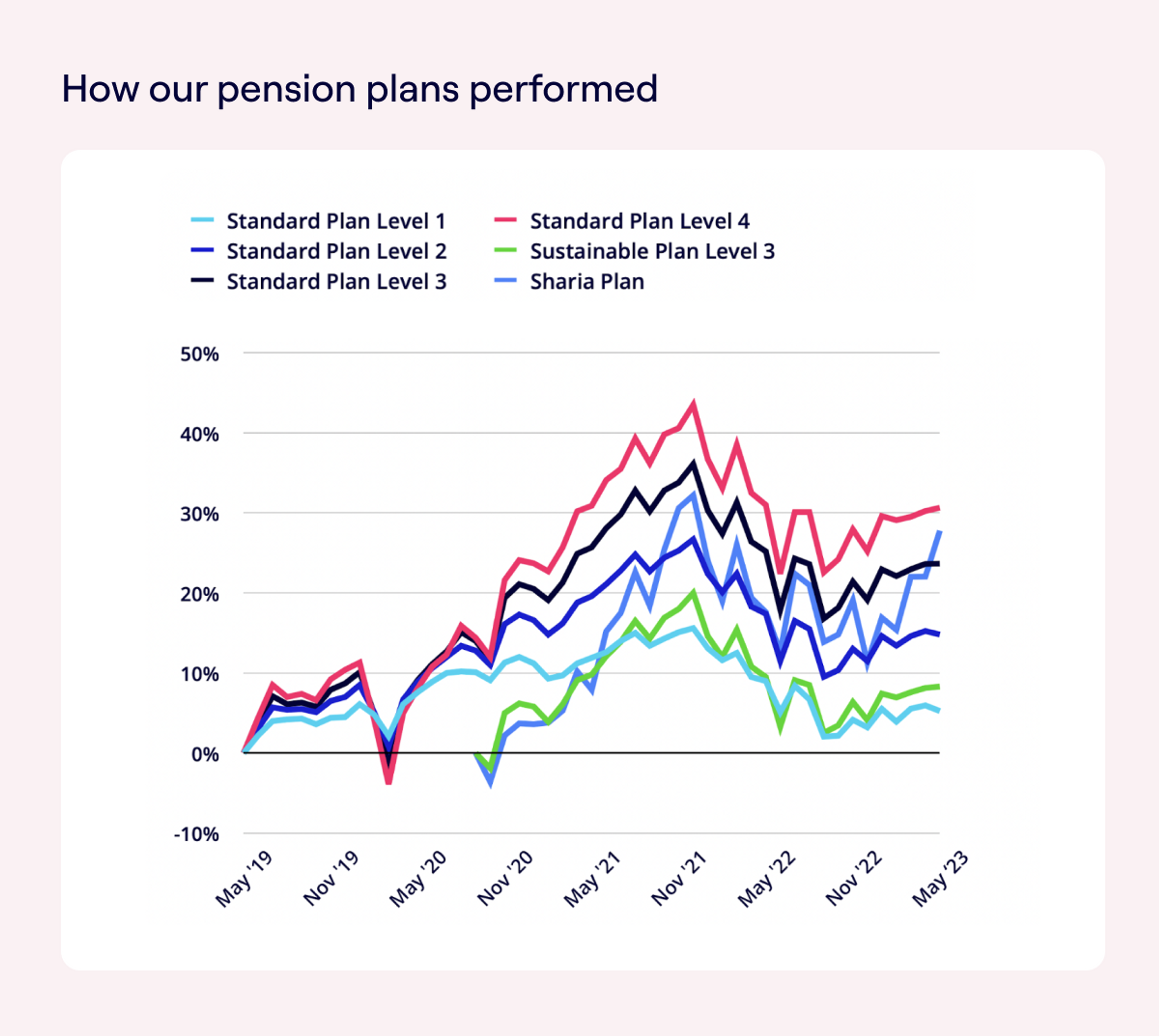
What makes this possible? There's no hidden secret. Penfold's funds are built on strategically diversified portfolios designed to decrease risk exposure, limit potential losses, and improve overall investment performance.
This approach is particularly valuable during challenging market conditions, as a well-diversified portfolio is more likely to withstand market fluctuations and deliver more stable returns over time.
US: market steadies following banking wobble
It was not an easy month for US stocks but the turmoil witnessed at the end of March and beginning of April as a result of the collapse of California-based Silicon Valley Bank now seems to have subsided.
The result was a modest climb of 0.25% for the S&P 500, which tracks the performance of the biggest 500 companies in the US.
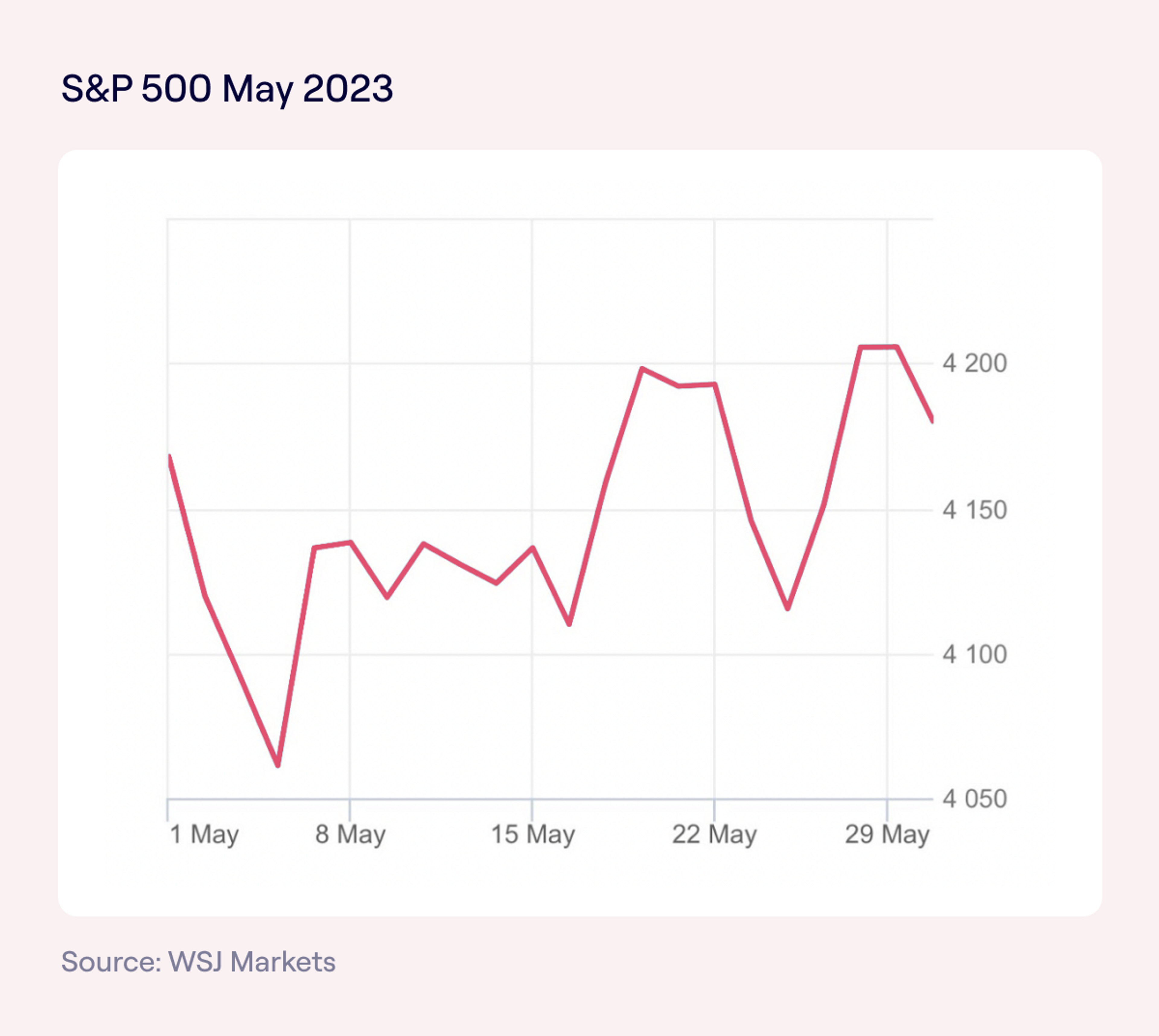
While energy stocks slumped as a result of concerns that the global economy might still be on course for a downturn, one big ray of light was the performance of the technology sector.
The question of how to harness the benefits of artificial intelligence has continued to dominate conversations, and investors have been scouring the market for companies best placed to take advantage of that explosion in interest.
As a result Microsoft, Facebook owner Meta, and Alphabet (the parent company of Google) have seen their share prices soar so far this year, with particular interest taken in Microsoft after the technology company said it would add an AI chatbot to its Bing search engine.
But, while the surge in technology stocks was good news, investors continue to be worried about the spectre of further interest rate rises from the Federal Reserve.
The initial feeling among investors was that the cycle of rate hikes, which tends to put a squeeze on the economy and stock markets (and hence dampen the performance of pension funds) was coming to an end.
But, as the Fed enacted an expected rate rise of a quarter of a per cent in May, senior policymakers at the bank also hinted that the increase wouldn’t be the last, and so we’ll have to wait and see what happens.
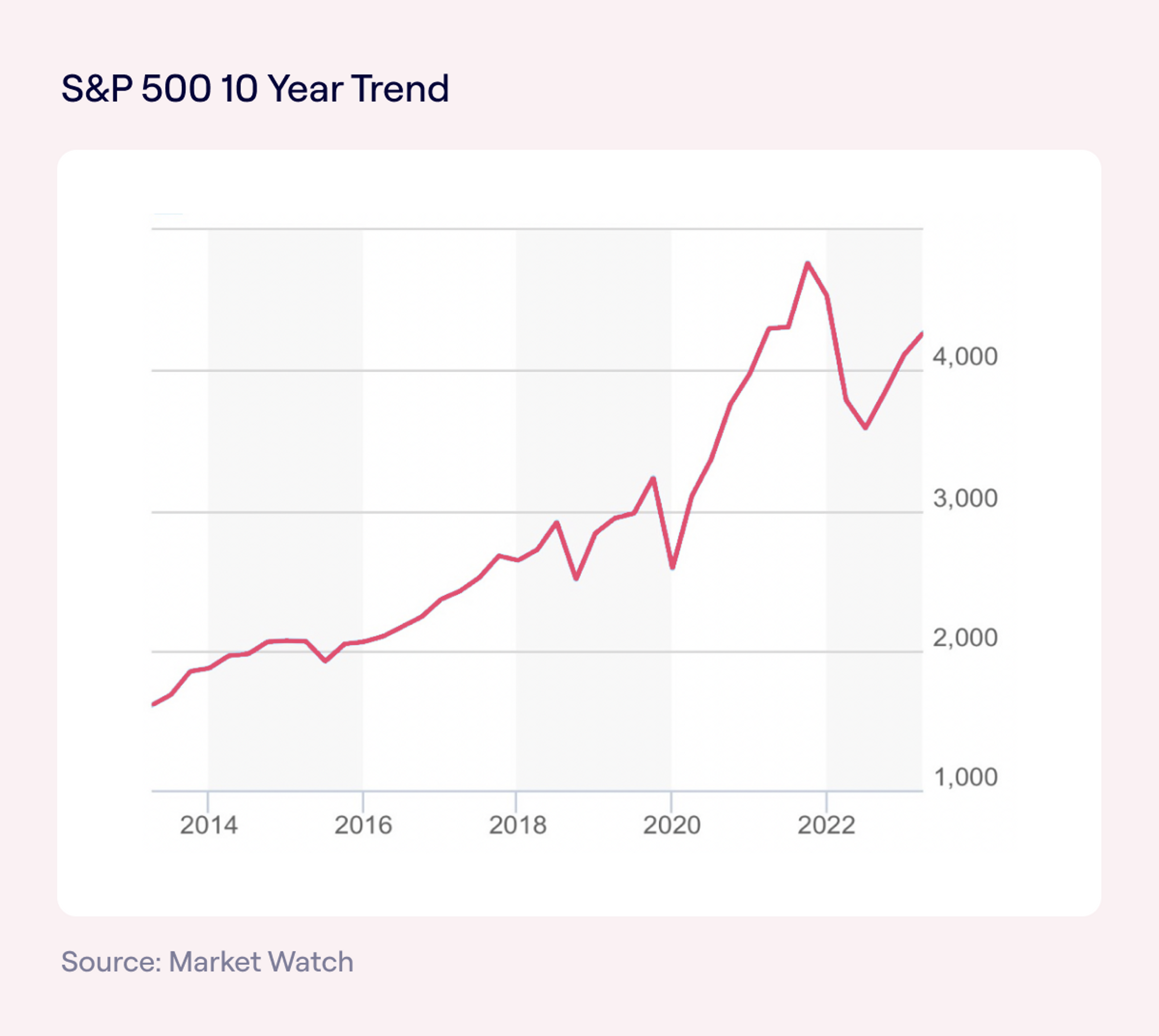
As a reminder, while it's helpful to stay informed with the latest news, the S&P 500's upward trend over the past decade demonstrates that, despite short-term market fluctuations influenced by financial events, it's the long-term growth trajectory that is crucial for accumulating pension wealth.
UK: no recession, but continued interest rate rises
UK equities fell in May but, as in the US, technology stocks had a stellar month as interest in artificial intelligence continued to grow.
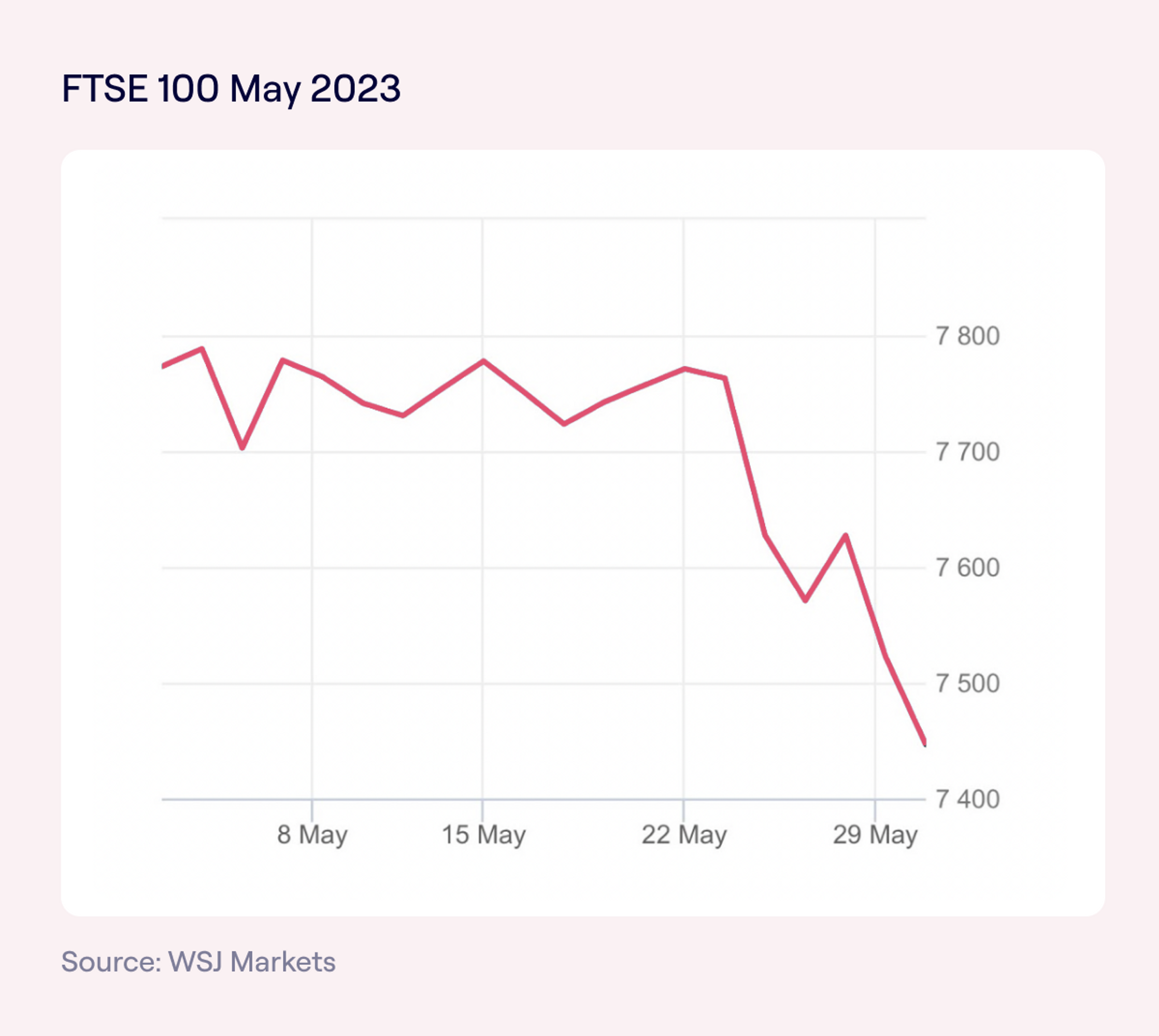
The particularly positive news in May was the International Monetary Fund (IMF) saying it believed the UK is now expected to avoid recession this year, with the IMF upgrading its forecasts for the British economy.
On May 23, the international financial organisation said British gross domestic product now looks set to grow by 0.4% this year, a significant upgrade of its earlier forecast that Britain’s economy would contract by 0.3%.
This upgrade has made UK investors optimistic that the Bank of England will now be in a position to bring to an end to its hectic cycle of interest rate rises, which were brought in to try and slow inflation.
The UK central bank announced a 12th consecutive interest rate rise in May, increasing the base rate by 25 basis points to 4.5%. The initial effect on the stock market was evident in the graph above.
Whether the Bank of England is ready to stop raising rates completely isn’t yet clear but the central bank governor Andrew Bailey indicated straight after May's rise was announced that we are now closer to the end of the hiking cycle.
This should enable companies to access cheaper debt in which to grow their businesses, which in turn is typically good for stock markets (and consequently the performance of your pension fund).
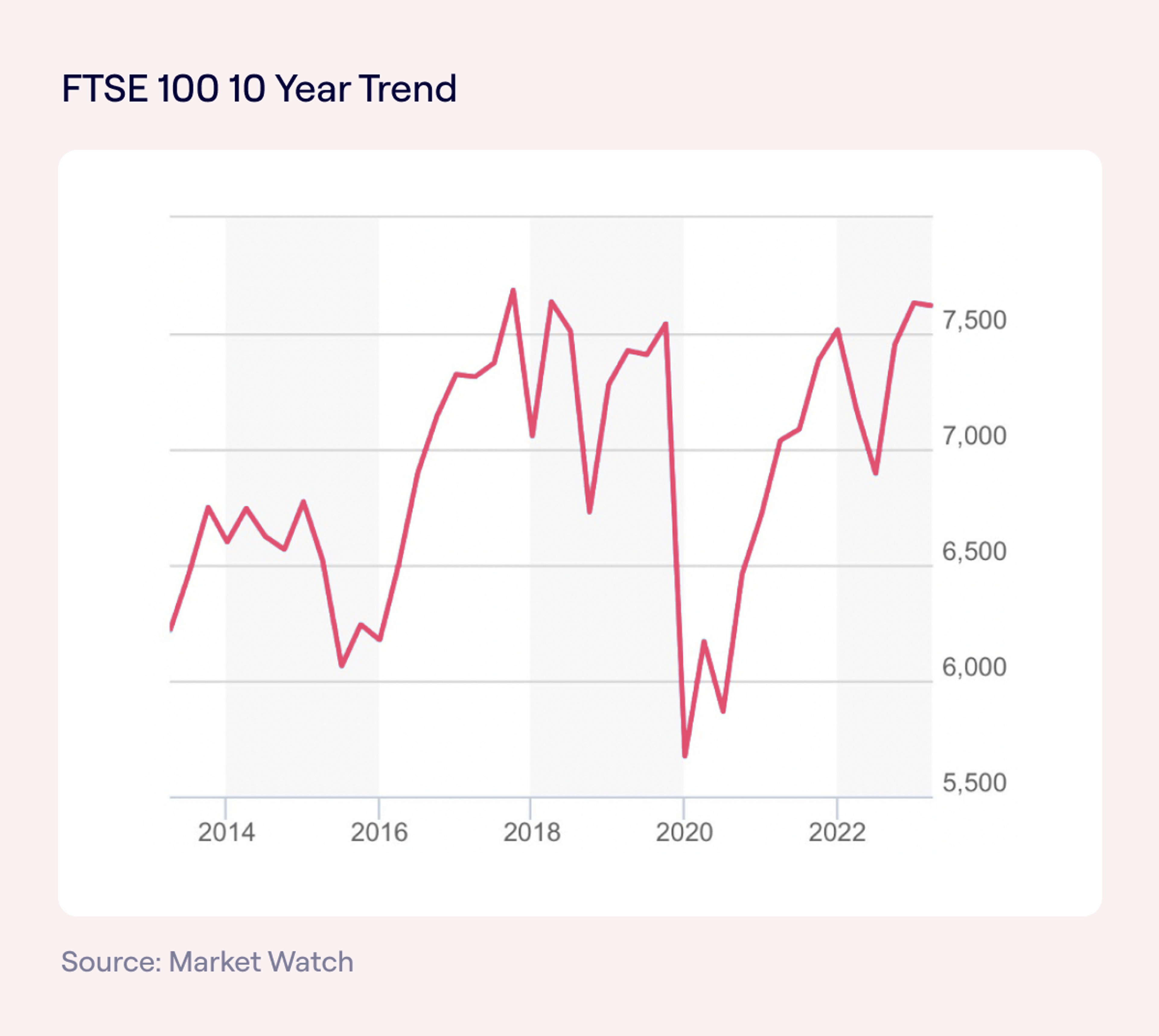
As the 10 year performance graph of the FTSE 100 above shows, it's the long-term trajectory that truly matters when it comes to building your pension pot. Short-term market changes may occur, but it's the consistent growth over time that contributes significantly to your pension.
EU: inflation lowers despite German stumble
After a strong start to the year Eurozone stocks fell in May, with revised data showing that Germany – Europe’s largest economy – has fallen into recession.
The revised numbers, which were published in May, showed that the German economy contracted by 0.3% in the first quarter of the year on the back of a 0.5% contraction in gross domestic product in the final three months of last year. A country is generally identified as being in a recession after two consecutive quarterly declines in GDP.
As with the US and the UK, any falls in inflation are read by investors as a signal that central banks might start to pause their moves to increase interest rates, which tends to be good news for stock markets as it creates an environment where companies are able to access cheaper debt and loans.
However, European Central Bank president Christine Lagarde reiterated in a speech that inflation was still too high and so investors are still expecting more rate increases to come. All will be revealed in the coming months.
See where your money is invested
For our monthly report, we focus on three main markets: UK, US and Europe. But for a closer look at where your money is invested, check the ‘Your Plan’ section of your Penfold pension, on the phone app or via your laptop.
Clicking or tapping on the plan you have selected will show you the geographic spread of investments, as well as the type of industries that your money is invested in. And remember: you can change your investment plan at any time.
With investments, your capital is at risk. The value of your investment can go down as well as up, and you may get back less than you invest. This information should not be regarded as financial advice and past performance is not a reliable indicator of future performance.

Murray Humphrey
Penfold